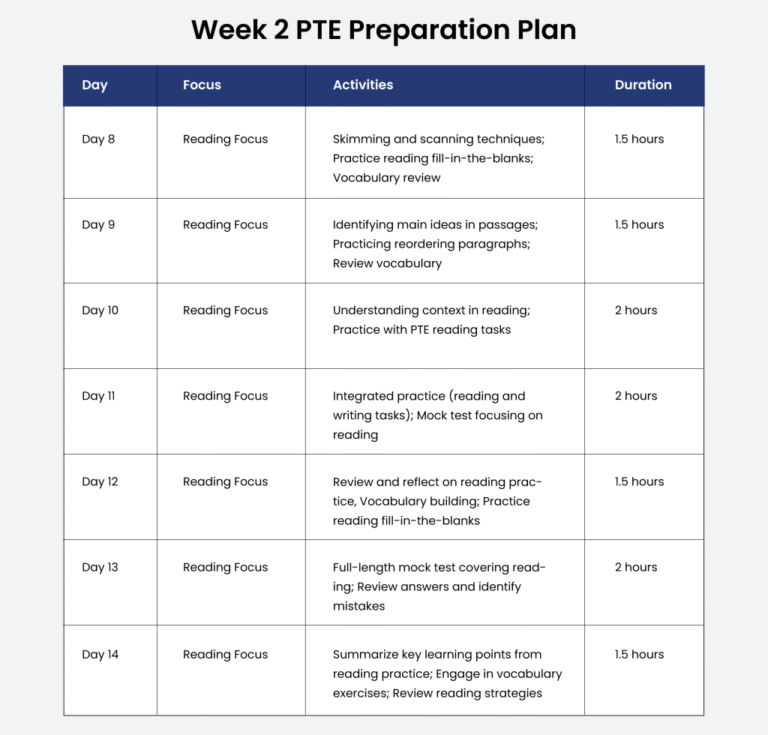The IELTS exam is not a walk in the park. It is not something you can wing. If you want to study abroad or work overseas, you need a solid score. This score can make or break your dreams, but worry not. You can prepare for IELTS in just 30 days. All you need is focus, discipline, and a smart plan. It will further help you if you have IELTS coaching in Dubai.
This guide will walk you through a full-month strategy. Week by week. Day by day. Let’s dive right into it with clarity.
Week 1: Understand, Evaluate, and Immerse
Day 1: Learn the Format
Do not start practising blindly. You must know the test before you take it. The IELTS exam has four sections—Listening, Reading, Writing, and Speaking. Learn the timing. Understand the tasks. Read the band descriptors. Absorb the rules.
Day 2: Self-Assessment
Time yourself and attempt a full mock test. This will show your strengths, expose your weaknesses, and highlight problem areas. Don’t fear the score. Use it as fuel.
Day 3: Gather Your Arsenal
Pick the right tools.
Choose a reliable book like Cambridge IELTS or Barron’s.
Find a vocabulary app.
Download practice tests.
Subscribe to a few YouTube channels.
Get headphones for listening.
Create folders.
Set up a workspace.
Day 4 to 7: Focus on Vocabulary and Listening
Start with listening practice by spending just one hour daily. You can use TED Talks, BBC Radio, or IELTS listening audios. This will train your ears. However, you must note the tricky accents and repeat phrases aloud. Shadow the speakers.
Some pointers to remember:
Learn 10 new words each day.
Choose academic words.
Focus on usage, not just meaning.
Write your own sentences.
Test yourself.
Week 2: Master Reading and Listening
Day 8 to 10: Reading Practice
Start with skimming and scanning instead of reading word by word. Set the clock to 60 minutes and solve a full reading test. Then, review each answer. Understand why it is right or wrong. Keep a notebook for errors.
You can also highlight keywords in questions. Match them with the passage. Learn to move fast.
Day 11 to 14: Sharpen Listening Skills
Level up your listening by focusing on Part 3 and Part 4 of the IELTS Listening section. They are the hardest.
Play the audio once only. Listen without subtitles. Predict answers. Learn to catch synonyms.
Keep practising with transcripts—Pause. Repeat. Parrot. Repetition breeds perfection.
Keep building vocabulary. Include collocations. “Make a decision.” “Take responsibility.” These score high.
Week 3: Crush Writing and Build Speaking Confidence
Day 15 to 17: Writing Task 1
Now, focus on Academic or General depending on your test type. Academic Task 1 involves charts and graphs, while General involves letters. So, learn the format and how to use a formal tone. Plus, practice writing it in 20 minutes.
For a better understanding, consider reviewing model answers. Still, don’t copy it word for word. Understand the structure.
Day 18 to 21: Writing Task 2
This is an essay that’s worth double the points. Here, you choose topics like environment, education, and technology to write opinion essays. So, learn to take a stand. Structure it like this—Introduction, Body 1, Body 2, Conclusion. Also, use paragraphs and strong topic sentences without overusing big words. Clarity wins.
However, this clarity can’t be achieved overnight. You need to practice daily with a timer. Spot mistakes and rewrite if needed. Writing is mostly rewriting.
Week 4: Simulate, Polish, and Breathe
Day 22 to 24: Speaking Practice
In the last week, try recording yourself while speaking on random topics for 2 minutes. Use a mirror, and watch your facial expressions.
Practice Part 1 questions that are casual.
Practice Part 2—This is the cue card. Don’t panic. Just speak.
Part 3 is analytical. So, give reasons and examples.
One great tip is using filler phrases, such as “Let me think” or “That’s an interesting question.” It keeps your speech natural and avoids memorised answers.
Day 25 to 27: Full-Length Mock Tests
Take two full IELTS mock exams by simulating real exam conditions. Print answer sheets and grade yourself. Then, use the answer key and check where you waste time. Finally, fix those points. Try again until you reach your best potential.
Day 28 to 29: Review and Fine-Tune
As you reach the end of the month, spare time to revise everything you’ve covered so far. Go back to your weak areas. It will help you stay confident.
Pick five writing topics and rewrite them.
Solve three more reading tests. Beat your old score.
Listen to three difficult audio files. Summarise them aloud.
Refresh vocabulary with the help of flashcards.
Day 30: Relax and Refocus
Today is not for books. It is for breathing. Watch a documentary, go for a walk, or do light revision if needed.
Sleep early. Eat clean. Visualise success. Believe in your preparation.
Bonus Tips to Stay Sharp
– Avoid burnout.
– Take short breaks. Stretch. Sip water.
– Keep a log. Track your daily tasks. Mark them done. Stay accountable.
– Speak English all day. Talk to friends in English. Think in English. Dream in English.
– Be stubborn about progress. If you’re stuck, switch methods. Try new techniques.
– Don’t compare. This is your journey. Your pace. Your score.
Final Thoughts
In 30 days, you can build habits, sharpen skills, and boost confidence. Don’t just study hard, but study smart. Each day is a building block, so stack them right. At the end, you will be able to stand tall. To learn more or sign up for IELTS coaching in Dubai, get in touch with English Wise tutors. Good luck!
Enjoyed this? Share this post with fellow fans and influencers, and be sure to check back regularly for the latest updates, insights, and news on all things simpcity!

